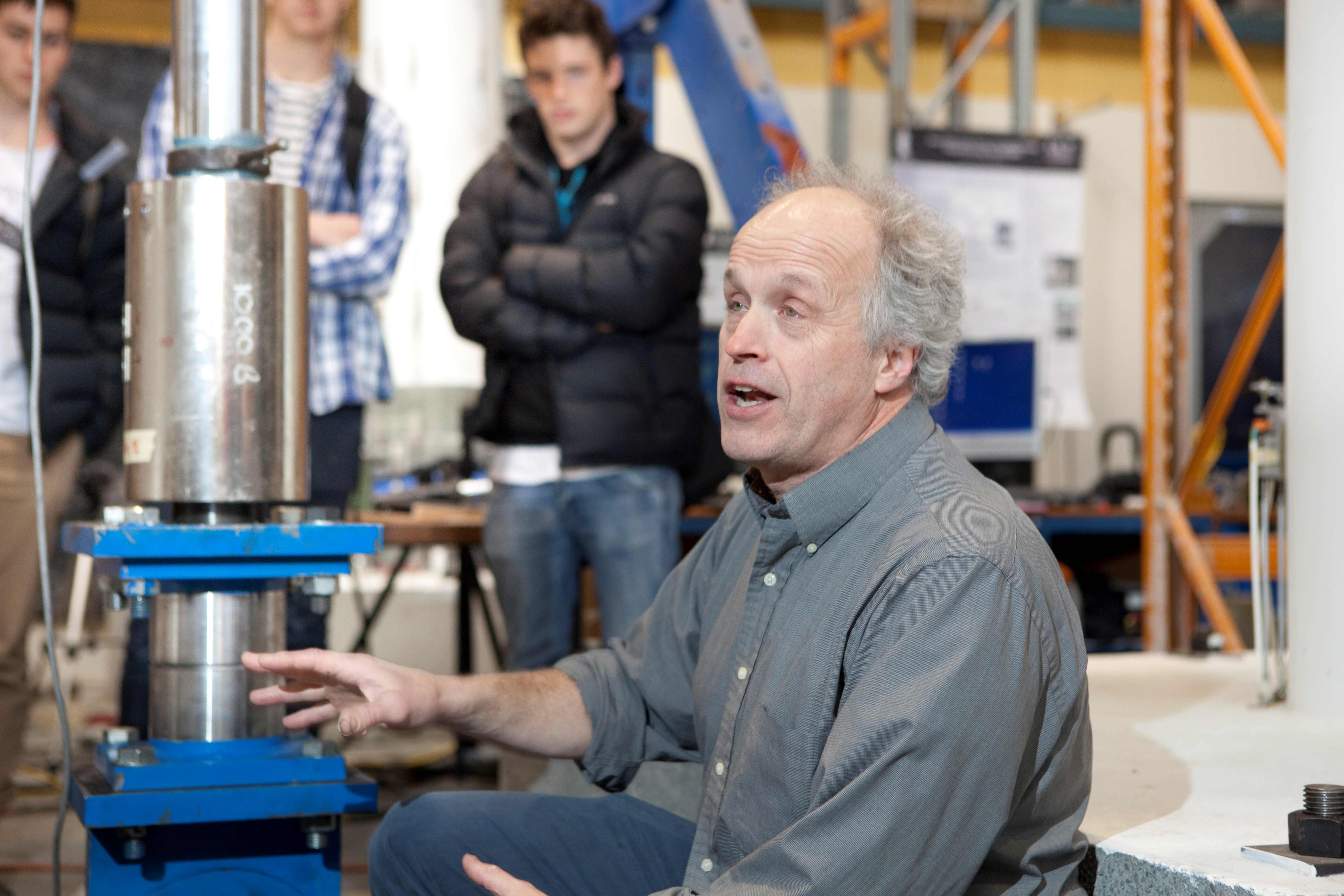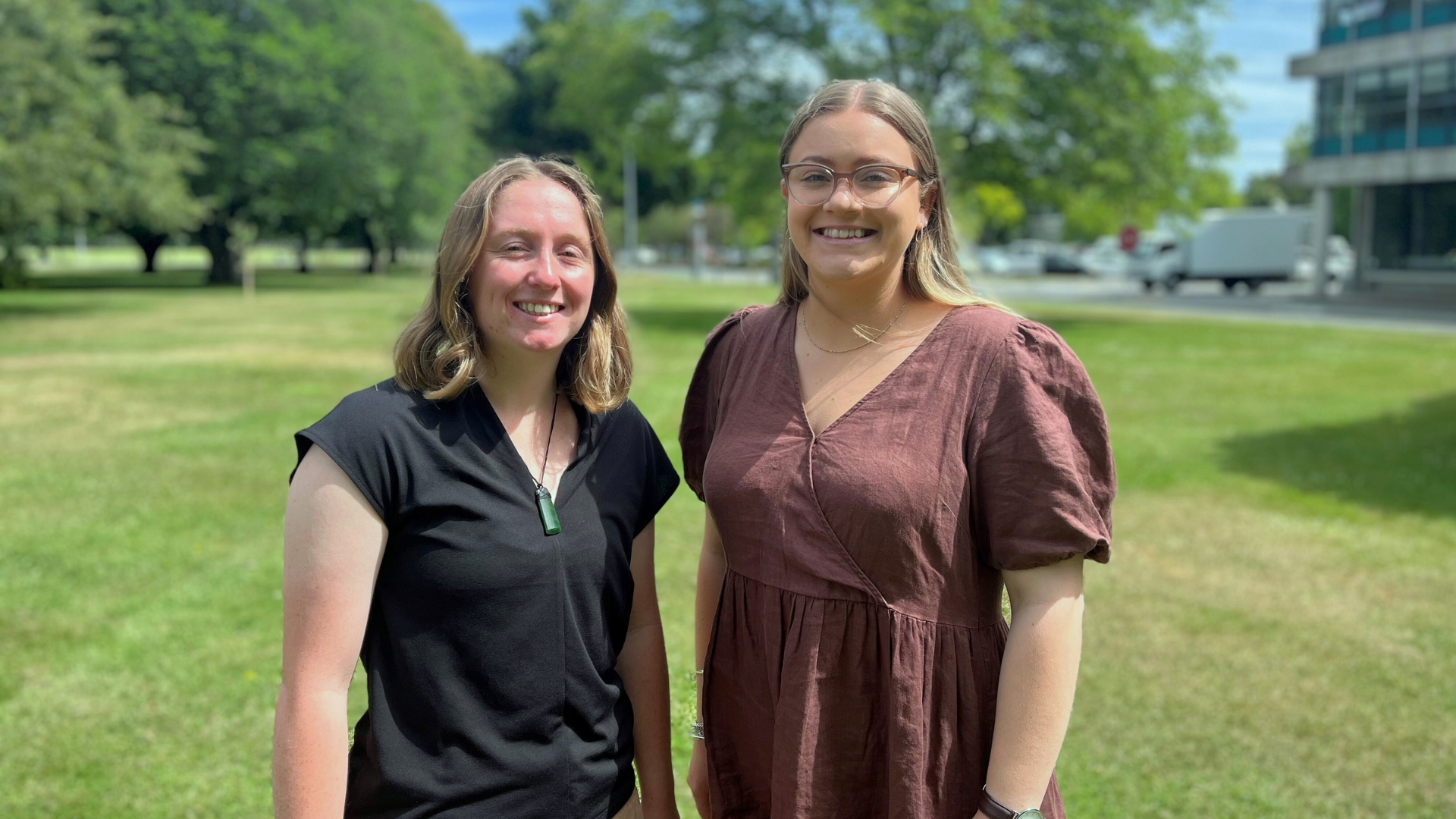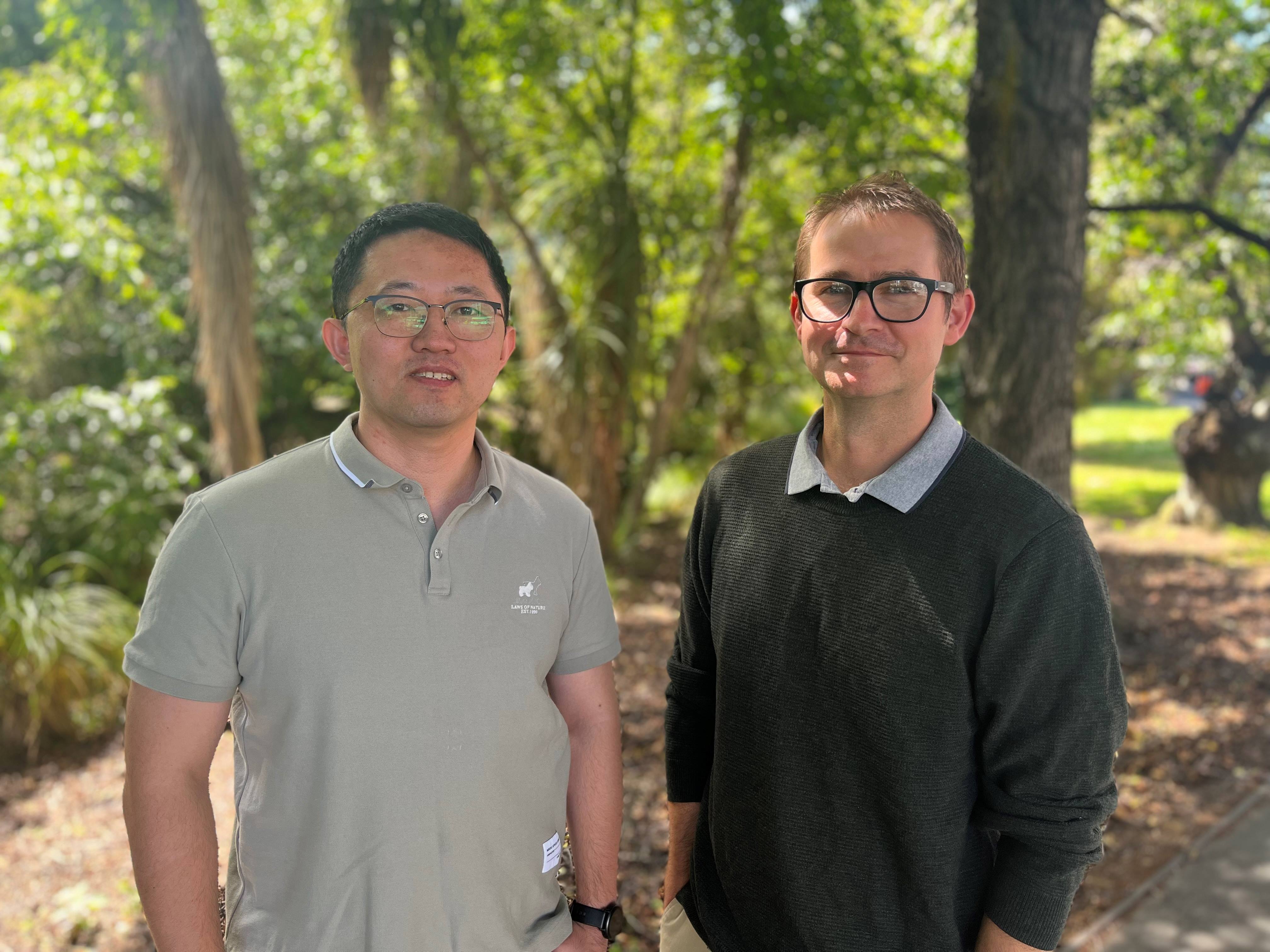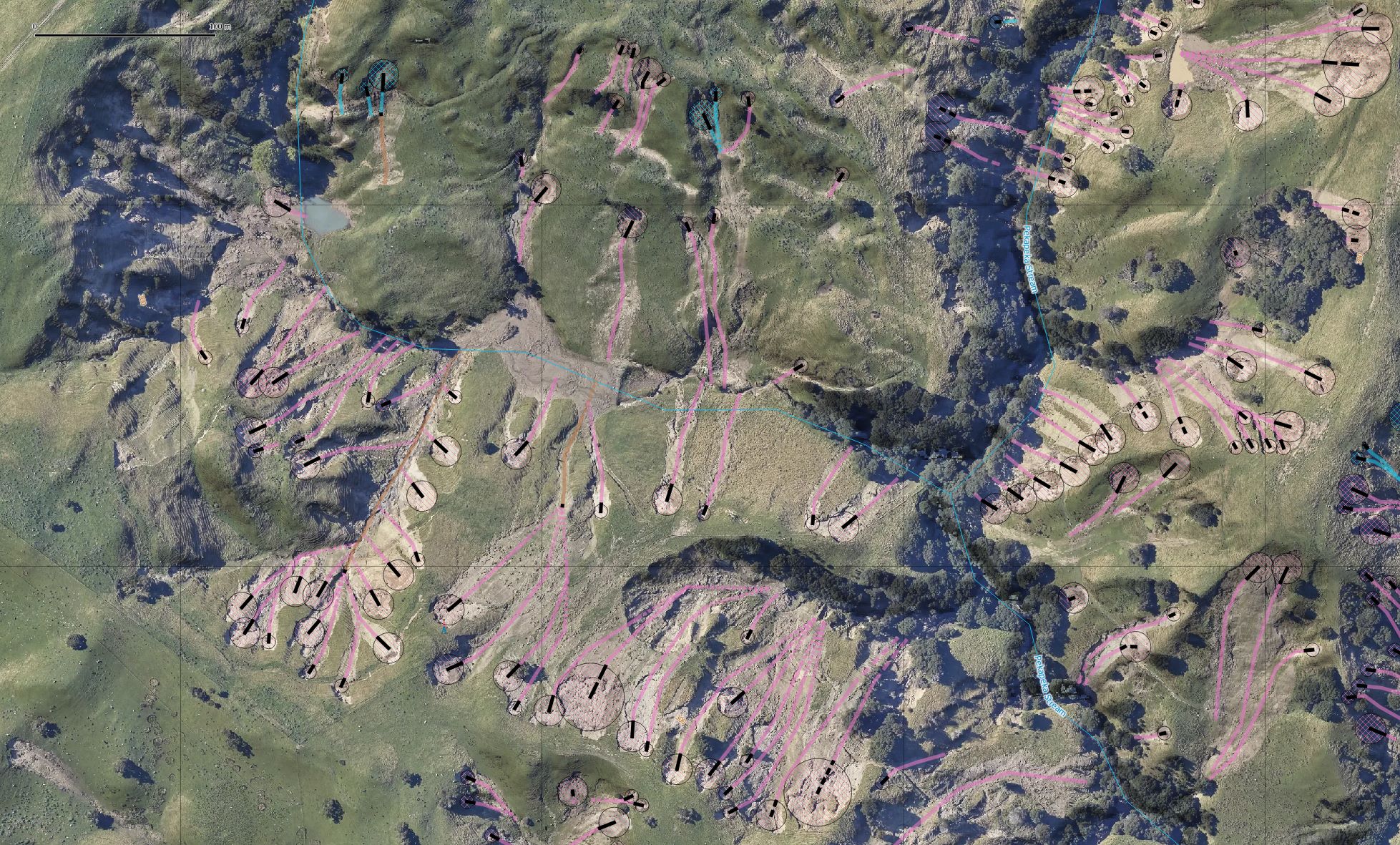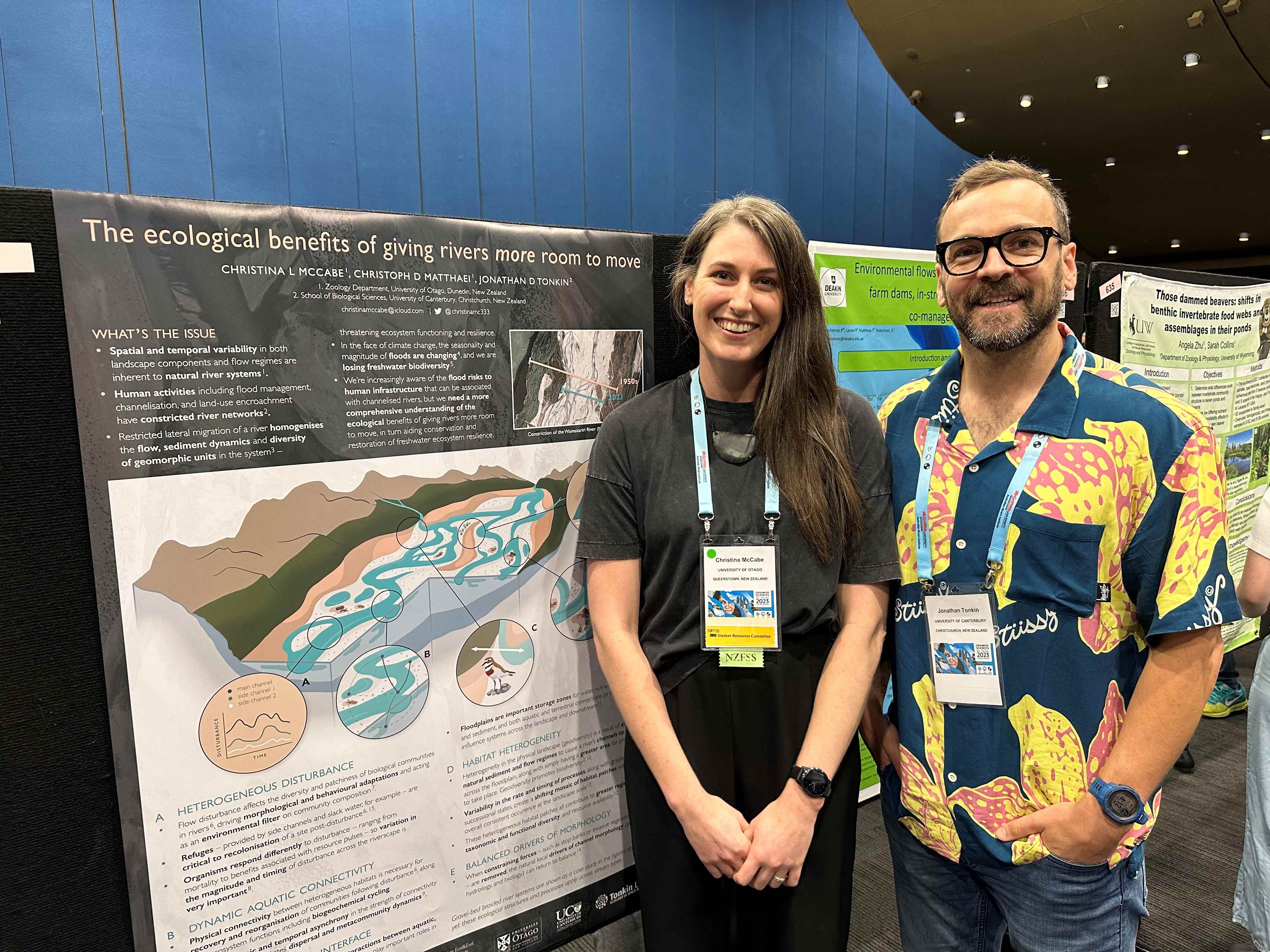Geology Students Taking Local Actions
First year students taking the Global Environmental Change GEOG 106 course had the opportunity “To think global – act local”. Students researched a global environmental issue of their choice, and came up with a plan of action, which addressed the issue at the local scale (i.e. within their flat, family, or immediate community). The students also needed to decide how they would measure the impact of their efforts. At the end of the semester, groups reported back to their peers on what global issue they focused on, what action they took, and how they measured their success. A wide range of activities were undertaken including shorter showers, eating vegetarian, planting trees, cleaning rubbish from streams and greenspaces, and opting for climate-friendly transport. At the end, the students individually reflected on their experiences and learning from their own groups activities and tasks undertaken by others, presenting an individually written report.
Rethinking roads as public spaces
Aotearoa New Zealand is highly car-centric, with bigger cities dedicating significant amounts of land to roads and parking. While roads and car parks are not often thought about as public spaces, New Zealanders pay to use them. UC’s Professor Simon Kingham, who was also chief scientist at the New Zealand Ministry of Transport, believes the “superblocks” model can offer an alternative, where traffic is limited and space is repurposed for public use, leading to benefits such as reduced pollution and increased economic activity. Key recommendations from the superblocks model include rethinking large infrastructure projects, optimising bus networks, better managing on-street parking, redirecting traffic to prioritise people, investing in public spaces and encouraging urban density. By implementing these changes, Aotearoa New Zealand’s urban landscapes could be totally transformed.
Leading engineer looks back on career of fighting fires
Emeritus Professor Charley Fleischmann has retired from UC after leading the fire engineering programme in the Department of Civil and Natural Resources Engineering for 30 years, developing it into an internationally well-known and respected degree. He was given the title of Emeritus Professor earlier this year in recognition of his contributions to teaching and research at UC and he says out of everything he has achieved in his career this work has been a personal highlight. “I’m really proud that I’ve helped build a well-established and robust programme in fire engineering that’s respected here and internationally. And I’m proud of the graduates that we’ve produced, because they’re the people who will carry on improving building fire safety in New Zealand and internationally,” Emeritus Professor Fleischmann says. Although officially retired, Emeritus Professor Fleischmann continues to work at UC part-time, supervising PhD students and mentoring other staff, while also working for the Washington-based UL Fire Safety Research Institute as a principal research engineer.
New research on natural hazards
Canterbury researchers have received national funding to investigate how climate change could increase the risk of damage triggered by earthquakes and landslides. Dr Timothy Stahl leads the research team, and says earthquakes and landslides are two of New Zealand’s deadliest and most costly natural disasters. “Cumulatively, landslides have caused more deaths in New Zealand than any other natural hazard and lead to $300 million in insurance claims each year. We plan to create up-to-date models for these hazards that will ultimately allow us to be more prepared and resilient. We’ll also drive new research into how natural disasters such as landslides, cliff collapse and flooding triggered by earthquakes, are affected by climate change,” says Dr Stahl.
Pacific-New Zealand partnership
UC is partnering on a unique research project to help Pacific countries and the global community understand how climate change will impact the Pacific, and how Indigenous knowledge can help Pacific communities adapt. The Pacific region is one of the most vulnerable regions in the world, but the Pacific people also have a long history of resilience to environmental changes and natural hazards. The three-year, multi-million-dollar project addresses a lack of research into community resilience and response mechanisms, and the ways Indigenous knowledge can work with social sciences and natural sciences to inform a range of responses, from government policies to community plans. The findings, from 16 countries, will highlight Pacific solutions to Pacific experiences, sharing these experiences across the region and the world.
Tracking volcanic hazards
New Zealand research could help track the path of searingly hot rock and gas flows that are the world’s most deadly volcanic hazard. Research by UC’s Dr Leighton Watson has for the first time shown that seismic signals - ground shaking recorded by seismometers - can be used to track deadly pyroclastic flows. The catastrophic eruption at Whakaari White Island in 2019 caused a pyroclastic surge of gas and rock that killed 22 people, while an earlier eruption in 2012 of craters on Mt Tongariro also caused pyroclastic flows, resulting in the closure of the Tongariro Alpine Crossing. Dr Watson says because of the extreme hazard posed by pyroclastic flows there is an urgent need to improve monitoring capabilities. Dr Watson is currently working on monitoring avalanche activity in Mount Cook Aoraki National Park.
Building smarter
A new study will explore how public buildings, including schools, could be designed to use sustainable cooling and heating technology and help New Zealand achieve its net-zero 2050 goal. Dr Wentao Wu is leading an international research team from five countries, who are focusing on reducing carbon emissions by improving energy efficiency in large buildings. “A combination of night-time ventilation in summer and passive heating in winter transforms thermal mass into a kind of thermal battery that is fuelled for a short time by renewable energy sources including natural ventilation and sunlight,” says Dr Wu. The hope is to develop a design and retrofit guideline that will help policy makers, architects and builders create buildings that are more energy efficient, reducing carbon emissions in the sector.
Our Community Garden has turned 20!
UC’s beautiful Waiutuutu Community Garden turned 20 this year. Staff, students and all those who have contributed to the space over the past twenty years were invited to come celebrate in the garden. People connected, reminisced, feasted on wood-fired pizza and listened to live music.
Building resilient cities
UC PhD candidate Bryann Avendaño has developed a game that could foster community-based resilience to plan cities for the future. The game simulates real life social and infrastructure decisions that will have to be made by stakeholders and policymakers in the face of climate change. Avendaño has worked with modelling and game-based simulation solutions with communities in Latin America and was recognized as a solution maker during the 2019 General Assembly of the United Nations in New York City for his work bridging the gap between scientists and communities facing climate change challenges. “I hope that this game-based simulation will not only be a methodology, but also a tool that local governments and local authorities can use here in New Zealand and abroad,” says Avendaño.
Cycling with Confidence
Our Sustainability Office hosted two free workshops for staff and students looking to bike to work, local shops or around town. It was an opportunity to get practical, personalised advice in a safe, supportive and fun environment. Workshop one covered cycle safety skills and techniques in an off-road setting, and workshop two put all the skills into practice on the cycleways and quiet roads surrounding the Ilam campus.
Partnering in climate change planning
A partnership between UC and the Christchurch City Council is leading the world in understanding and adapting to risk from climate change. UC Civil Systems Engineering lecturer Dr Tom Logan specialises in how cities and communities prepare for the changing and uncertain climate. Dr Logan says, “This partnership is a unique and exciting opportunity to co-develop research that immediately has impact on improving our community’s resilience and ability to prepare for the future.” Jane Morgan, Team Leader of Coastal Adaptation from the Council, says, “Adapting to climate change requires innovation and partnerships, and this collaboration with UC has provided us with locally built tools to identify and understand the many risks to places, infrastructure and things that are important to communities.”
Timber wall research
Associate Professor Minghao Li and PhD student Ben Moerman have been testing large cross-laminated timber shear walls in the UC Structural Engineering Laboratory to find out how they behave in significant earthquakes. Associate Professor Li says the benefit of wood is that the building sector can contribute to the country’s zero carbon goal. “Wood is a carbon sink; it can sequester carbon or basically absorb it from the atmosphere,” says Associate Professor Li. For Ben, his “goal is to play a part in making mass timber buildings more popular and increase the use of New Zealand timber products in building construction.”
Will shared transport improve our lives?
The impact of shared transport on two different Christchurch communities could determine transport goals for Aotearoa New Zealand. Professor Simon Kingham is leading a team of researchers from Canterbury, Lincoln and Otago universities as part of a study for two National Science Challenges – Ageing Well and Healthier Lives – to understand what happens when shared transport was introduced in two demographically different communities. The Christchurch-based study examines the impact of shared transport options into a lifestyle village and a community housing trust on those communities. The study, measuring the effect on wellbeing, physical activity, social connection and safety, has been running for over a year producing initial survey results and has just over two years to go.
Resilient Cities Education and Research
Our School of Earth & Environment have a range of innovative learning and research options for on resilient cities, environments and communities, along with facilitated learning through students engaging with local groups to help make our city Ōtautahi Christchurch and the Canterbury region of Aotearoa New Zealand more sustainable and resilient. For 2021, a sample of UC student research projects explored:
- Juvenile bar-tailed godwit settlement at the Avon-Heathcote Estuary
- Engaging with young people on climate change
- Landscape Preservation on Banks Peninsula, is there enough
- Engaging with communities in the Ōtākaro Avon river corridor with rephatography
- Learning from the past in developing our urban landscapes
- Risks and opportunities of blue carbon as a response to sea level rise in Lyttleton Harbour
On becoming carbon net neutral
We are committed to reducing our carbon emissions. UC received a funding boost from the Government to help us become carbon net neutral by 2030. The funding boost will help us in the conversion of our Ilam campus boiler from coal to biomass and allow us to introduce ground source heats pumps which will become our sole source of heat in the next 10+ hears. “We are investing in the future, so our students are learning in facilities that are as efficient and sustainable as possible. Thanks to the Government’s funding we can do that sooner”, says Professor Jan Evans- Freeman, Pro-Vice-Chancellor Sustainability.
Timber wall innovation a leap forward
Exciting new research has demonstrated cross-laminated timber (CLT) walls are feasible and cost-competitive with steel or concrete systems in low-rise buildings and offer significant environmental benefits. The findings from research by Associate Professor Minghao Li and his team could have far- reaching implications for the construction and forestry industries and New Zealand’s quest to become a carbon-neutral economy. The research team designed innovative high-capacity connections to resist earthquake forces and protect the integrity of the timber walls. “New Zealand has 2.1 million hectares of plantation forests, and we grow a lot of high-quality timber, like radiata pine that we can use for construction. We hope our research will convince the building industry to use more timber, which will also benefit our forestry industry,” says Associate Professor Minghao Li.
Building bridges on uncertain ground
There has been increased interest in creating more earthquake-resilient bridge infrastructure in Aotearoa New Zealand. In response, our Civil Engineering researchers expanded on past research and application of posttensioned rocking bridge columns, and developed a cost-effective, low- damage solution for bridges. The combination of self-centring rocking bridge columns can achieve large displacements with little to no damage compared to conventional bridge columns. A rocking column is comprised of two main structural components: one or multiple high strength bars that act like rubber bands to recentre the column, and several conventional steel bars that are detailed to dissipate energy and can be easily replaced if heavily damaged. The low-damage solution for bridges yield little to no damage if hit by a strong earthquake. The low-damage, cost-effective solution for bridge infrastructure means engineers and constructors can start adopting it sooner.
Young Lives in Seven Cities
By 2050, seven out of ten young people will live in an urban area. Research teams in seven cities around the world explored how we live well in cities so young people can flourish but not stress the planet. In early 2020 the global project, Young Lives in Seven Cities, came to Ōtautahi and featured a discussion series, the launch of a city-wide online survey for young residents, and an exhibition at Tūranga Central Library. The project is led by UC’s Professor Bronwyn with Dr Kate Prendergast. “We’re interested in finding out what cities can do to better support quality of life for young people in low-carbon ways. That includes understanding their aspirations and life satisfaction and their energy use across five domains: what they are eating, how they’re getting around, how they live at home, and their time use – study, work and leisure activities,” says Professor Hayward.
Resilient Cities
The Resilient Cities course explores contemporary and pressing issues of urban development for resource use and infrastructure, and how to manage cities sustainably. Topics cover energy use, transport networks and green development. The focus is on the need for cities to be resilient to the challenges they face. Students are taught both applied and practical elements of sustainable urban development. Each year there is a different theme, and in the previous two years students have looked at biophilic cities and at the Christchurch central city rebuild, which involved collaboration with local government officials and communities.
Master of Urban Resilience and Renewal
Our Master of Urban Resilience degree addresses broad urban issues and students engage with communities on current challenges that cities may face in Aotearoa. While many postgraduate degrees focus on local planning legislation, there are no other identifiable postgraduate study programmes in Aotearoa that focus on how communities respond to challenges that urban areas are facing now. Some of these challenges may be associated with flood risk, coastal erosion, sea level rises, and challenges of demographic growth and urban spread.
Strengthening communities
UC is the only place in the world to create the unique course, Strengthening Communities with Social Innovation, which was inspired by the actions of the Student Volunteer Army following the Christchurch earthquakes. Over 1000 students have taken the course in the past nine years. During that time, students have contributed over 25,000 hours of service to more than 50 community organisations, government agencies, and individuals in Christchurch, Japan, Vanuatu, and the U.S.
Utah Emergency Management Visit
In early 2020, 24 visitors comprising police, firefighters and other emergency personnel from Utah, USA, and emergency management students from Utah Valley University, visited UC to learn about post-earthquake initiatives. UC’s Associate Professor Billy O’Steen explains: “They have found the Christchurch context particularly rich with regard to how UC and other organisations have responded to the 2010 and 2011 earthquakes. This is a great example of UC sharing our unique expertise and experiences with others from around the world. This is the third time that students and staff from Utah Valley University have visited the University of Canterbury as part of their emergency management graduate programme.”
Sustainable and Connected Campus
UC’s Campus Master Plan guides our built infrastructure for the next 20-30 years. The Plan focusses on an individual’s use in the built environment, such as great airflow, more light, quiet study spaces, wi-fi to promote student connectedness, showers and toilet facilities for all, and accessible routes for wheelchair users.


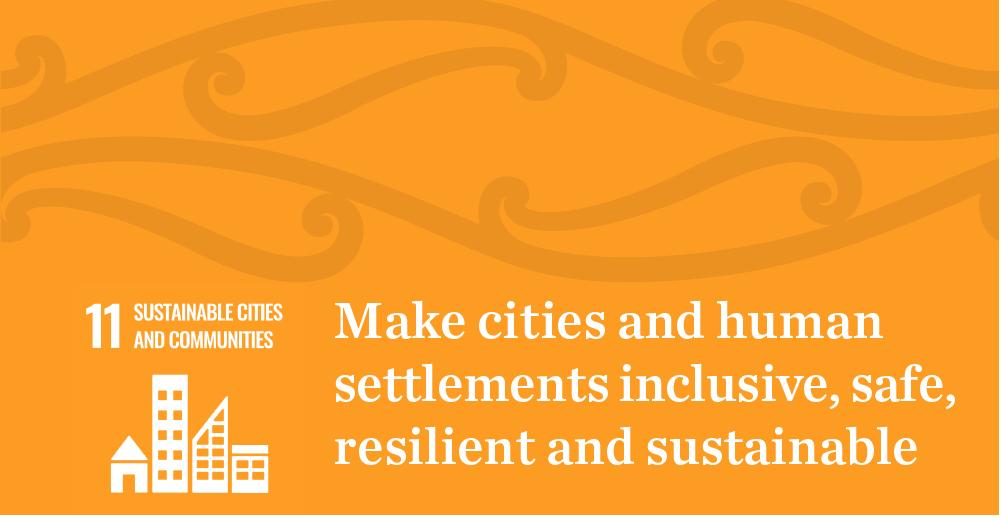
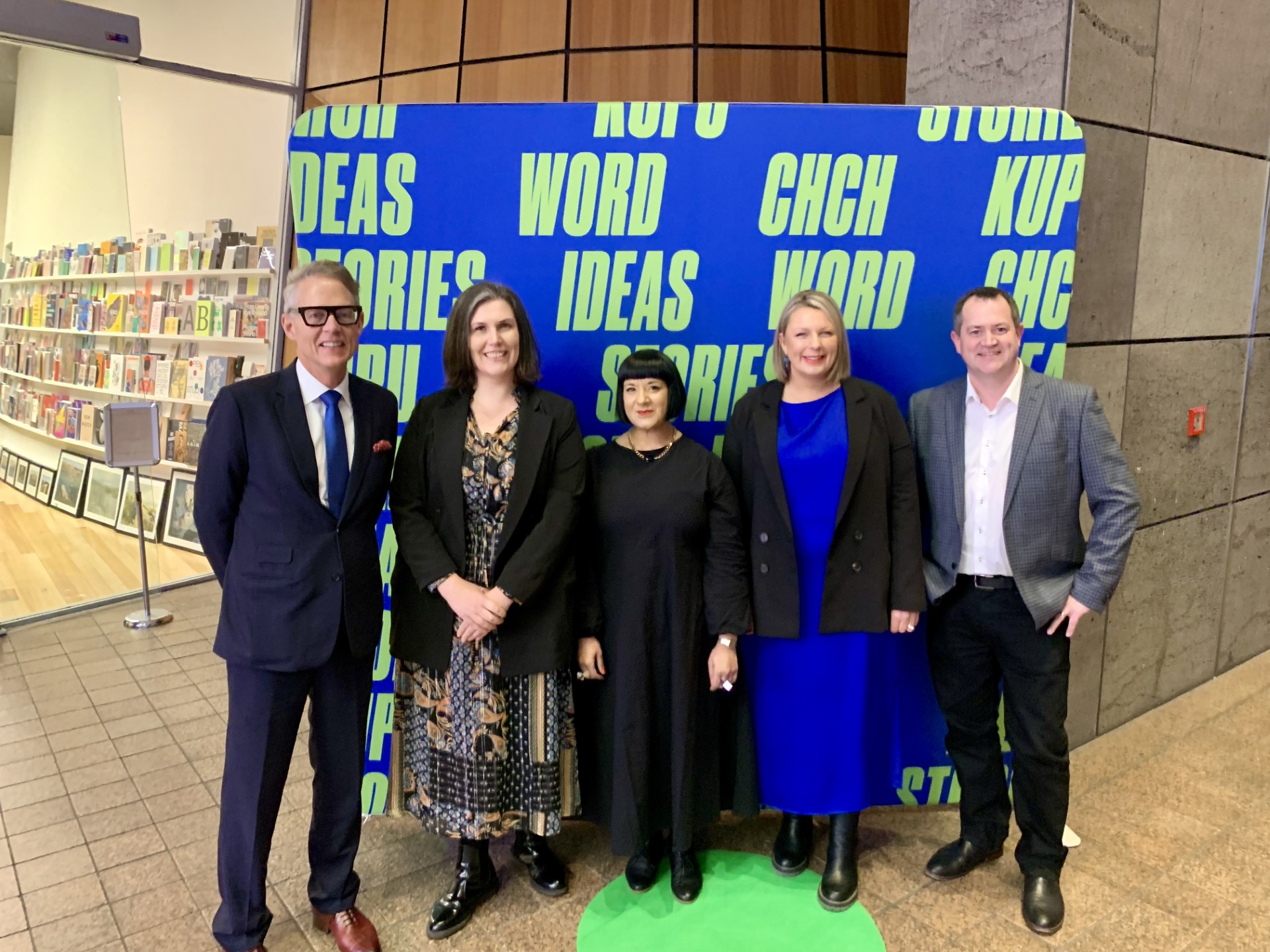
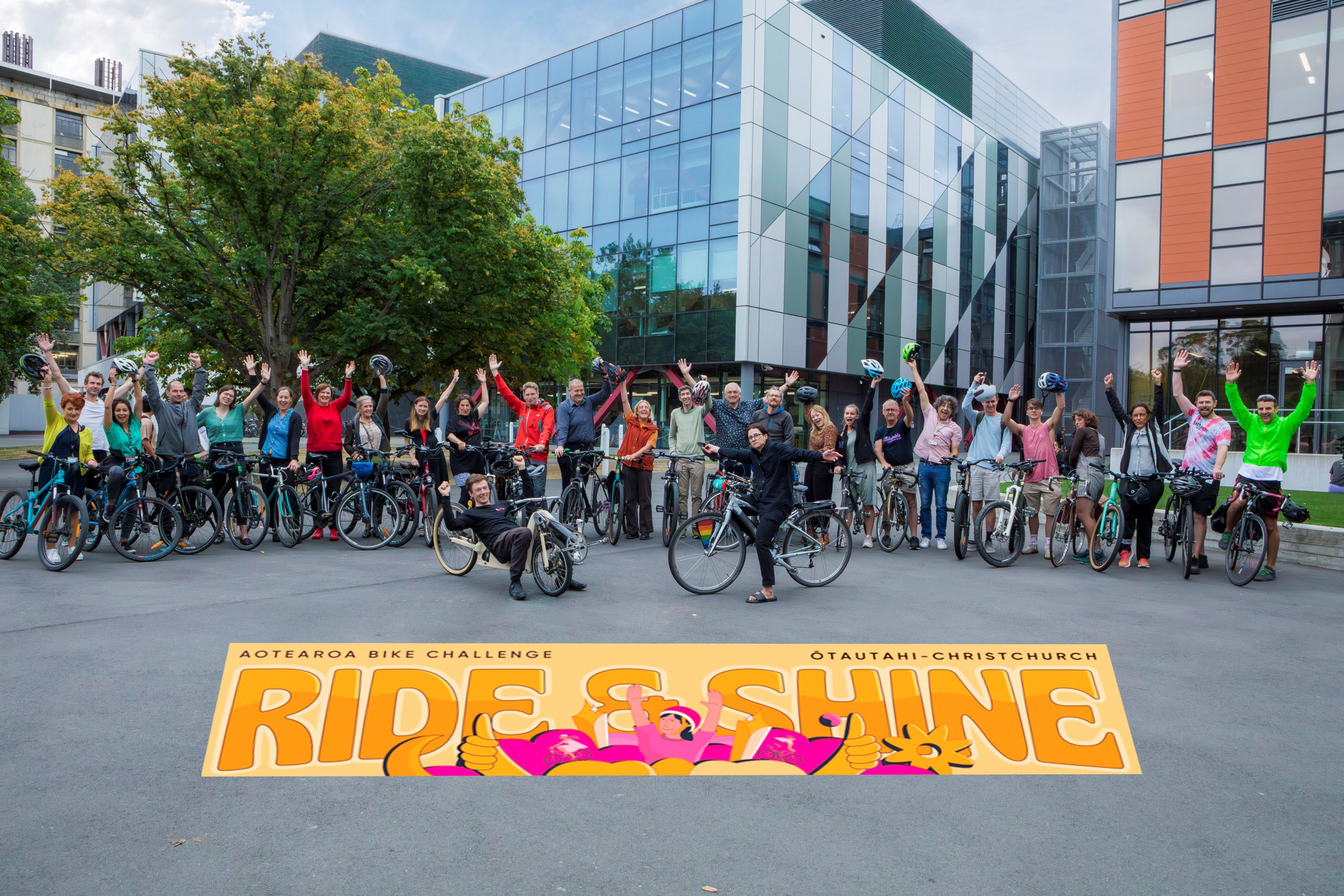
.jpg)
